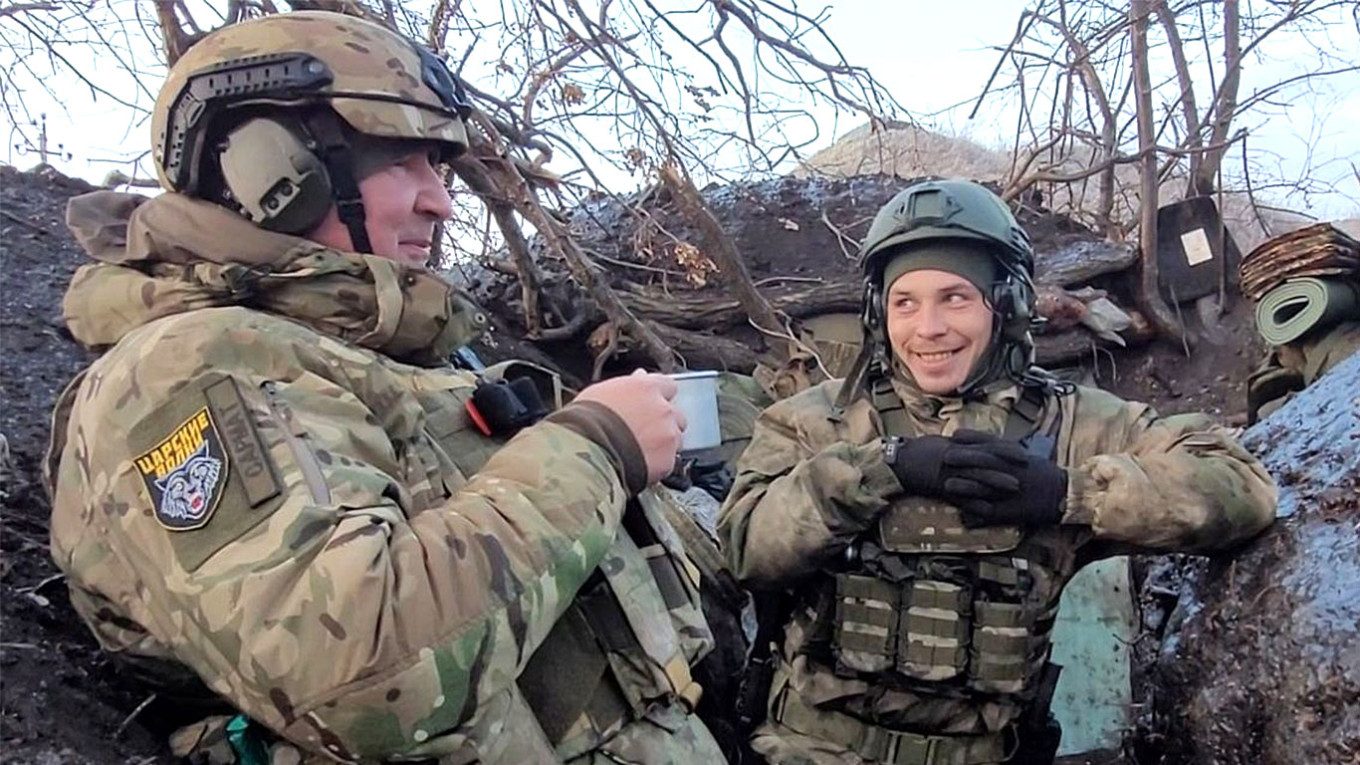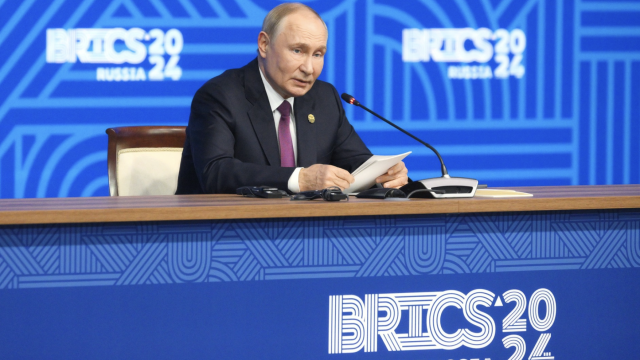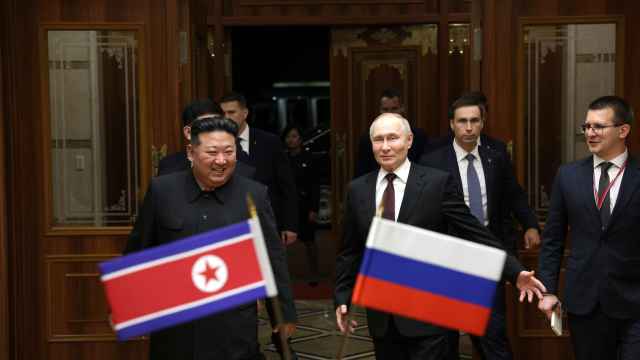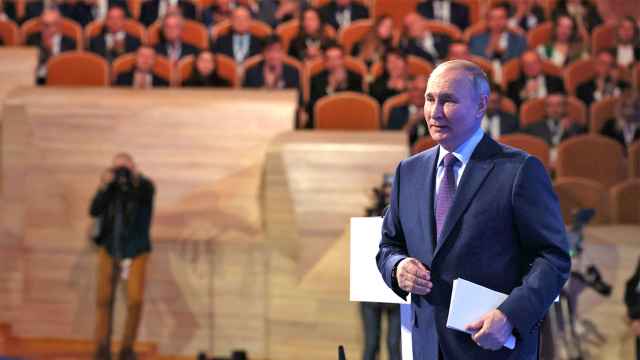Scores of Russian officials have signed up to fight in the Ukraine war since Moscow launched its full-scale invasion nearly 19 months ago.
Coming from all corners of the country and holding various positions, these officials harbor a range of motivations for going into military service. While some believe donning army fatigues may help advance their career in an increasingly militarized political landscape, others hope it might save them from dismissal or even a lengthy jail sentence.
Most high-ranking officials seen on the frontline in Ukraine have joined up with the Kaskad volunteer battalion, headed by State Duma deputy Dmitry Sablin. The battalion was allegedly formed in the wake of Russia’s "partial" military mobilization last September and its members are believed to have been deployed in the occupied Donetsk region of eastern Ukraine.
At least five of Sablin’s fellow State Duma deputies from the ruling United Russia party have served in the ranks of the Kaskad battalion, alongside professional soldiers and volunteers, since its founding.
Although officials enlisted in Kaskad frequently post on social media about their soldering life, with some even receiving military decorations, experts are skeptical as to the true extent of their involvement in the war, least not because most of them continue to perform their legislative duties during deployment.
“We can’t say for certain whether they participate in combat or not,” said Mikhail Komin, an expert on Russian elites and a visiting fellow at the European Council on Foreign Relations. “It seems they need it for their personal PR.”
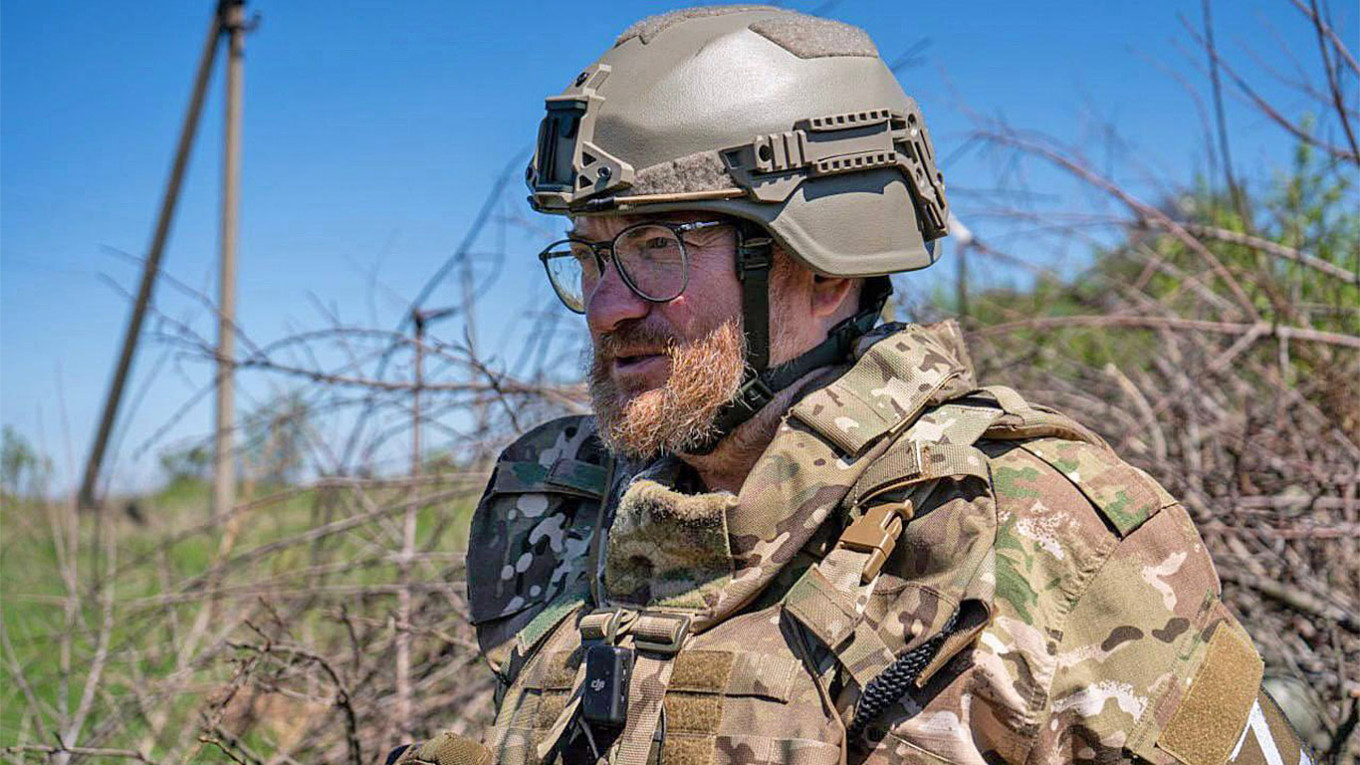
For politicians like Kaskad’s head Sablin or Vitaly Milonov — a State Duma deputy infamous for his anti-LGBT views and who claims to have been fighting in Ukraine since last September — participation in the war is “a peak PR moment” that can help solidify their public image as that of defenders of traditionalist conservative values, according to Komin.
Meanwhile, officials at the local and regional levels are more likely to join lesser-known battalions. This, however, does not mean they are any less likely than their higher-ranking colleagues to use military service as a publicity stunt, portraying the decision to go to war as fulfillment of their patriotic duty, as well as bringing them closer to “ordinary folks.”
“It just so happens that in my worker-peasant family, both my brother and I went [to the war] as volunteers without consulting each other in advance. . . Believe us, wait for us! We will definitely come back!” Dmitry Filippov, an official from St. Petersburg and an author of patriotic novels, wrote last year in a widely publicized post on the messaging app Telegram.
Yet, for most officials, deployment to Ukraine has so far delivered few if any tangible career benefits.
“The war just isn’t a factor in decisions on appointing lower-ranking executives,” said Alexandra Prokopenko, an independent journalist and researcher at the Berlin-based Center for East European and International Studies.
“The Presidential Administration. . . was promoting several participants of the special military operation [for government positions]. They tried to turn [military service] into a career ladder, but it hasn’t become a mass phenomenon or a valuable career investment,” Prokopenko told The Moscow Times.
During Russia's regional elections earlier this month, Kaskad battalion veteran and United Russia member Sergei Sokol — who was awarded the Order of Courage after returning from the war this spring — withdrew from the race for the position of governor in the republic of Khakassia.
Neither the Kremlin’s backing nor his war veteran status helped Sokol boost his chances of victory in arguably the most transparent and competitive of this year’s elections. While the politician-turned-soldier cited health issues for his decision to drop out of the race, a number of experts believe Sokol's unpopularity was the more likely cause.
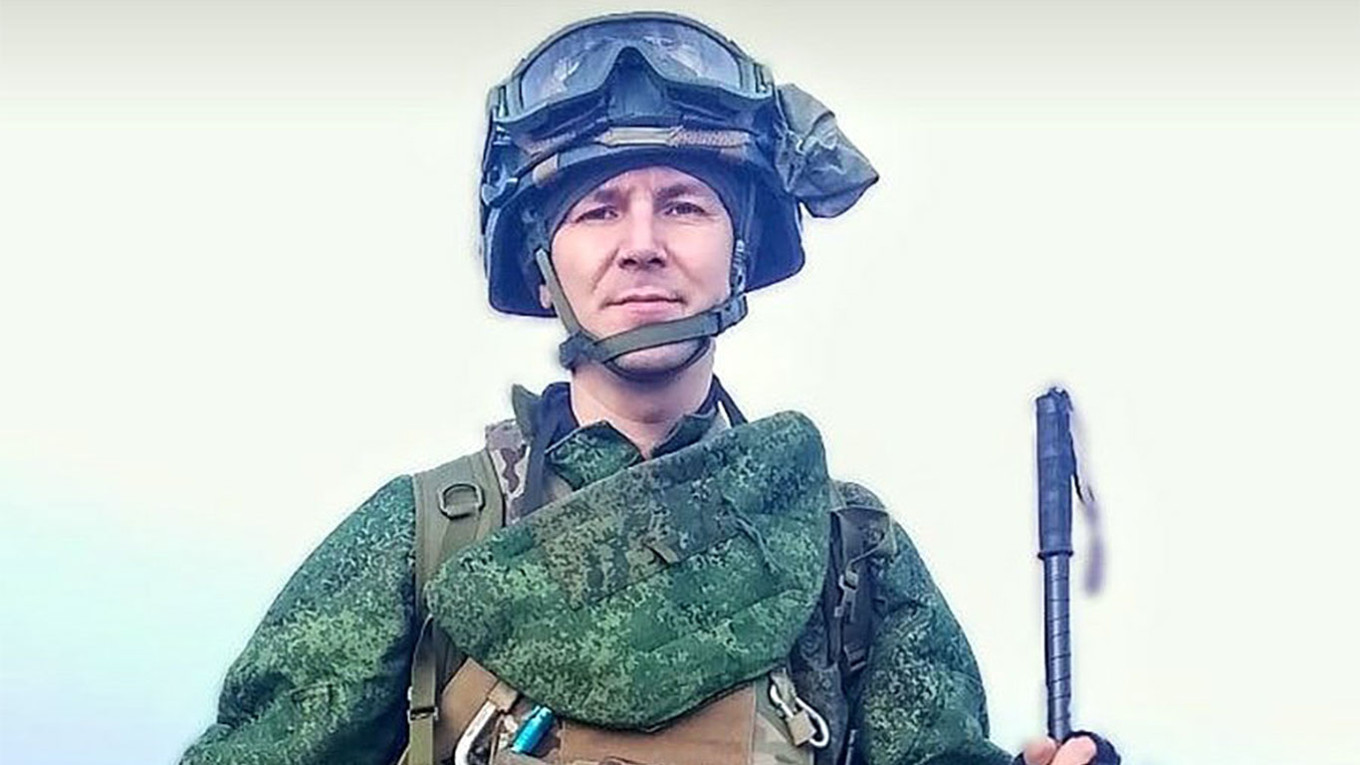
However, for officials seeking to break into the Kremlin-backed administrations of occupied eastern Ukraine, military service might, in fact, serve as a critical stepping stone for a career relaunch.
The Russian newspaper Kommersant reported last week that former Roscosmos head Dmitry Rogozin could make a political comeback by representing the occupied Zaporizhzhya region in Russia’s upper-house Federation Council.
Rogozin went to the frontline in Ukraine shortly after he was dismissed from the Russian space agency last summer and has since been serving as a military advisor in the occupied Donetsk region. According to analyst Komin, the former space chief was possibly facing the prospect of criminal prosecution on corruption charges. His military service was one way he might avoid legal troubles.
Similarly, for a handful of prosecuted or already convicted officials, serving in Ukraine has become a kind of get-out-of-jail-free card.
Alexei Pyankov, the former head of the State Property Management Ministry in the Sverdlovsk region, was shipped off to the frontline last year amid the Kremlin's "partial" mobilization despite being under criminal investigation. Law enforcement authorities allegedly demanded that Pyankov return to Sverdlovsk, but their calls went unanswered and the ex-official is still serving in Ukraine.
And in June, Aleksandr Khakonov, a local deputy in Siberia’s Krasnoyarsk region who was sentenced to nearly a decade in prison for murdering his wife, avoided prison by joining the Wagner mercenary group.
Meanwhile, among dozens of media reports identified by The Moscow Times, only two confirmed the deaths of Russian officials fighting in Ukraine.
In March, for example, officials in St.Petersburg announced the passing of Grigoriy Chubko, the former chairman of a local branch of the electoral commission who volunteered to fight in Ukraine. He was posthumously awarded the Order of Courage.
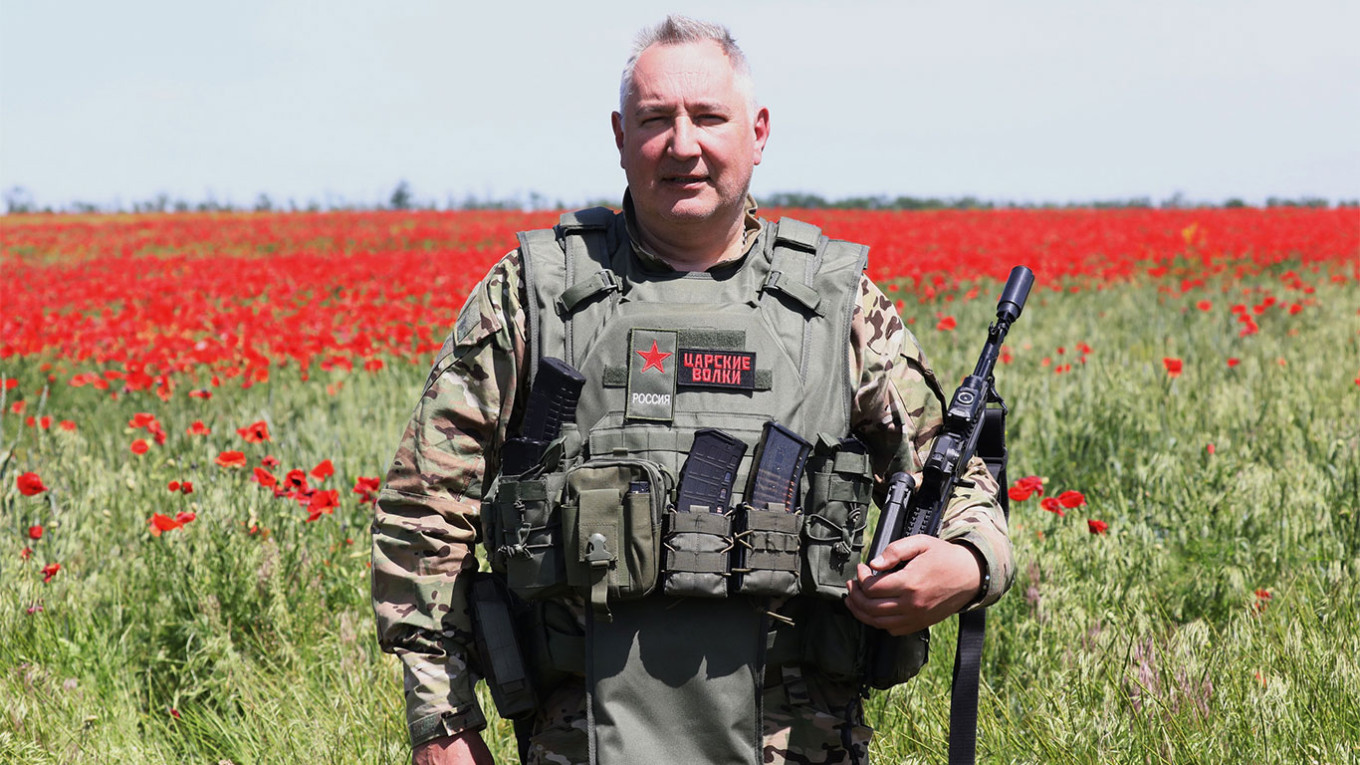
But as Russia’s protracted war in Ukraine drags on, officials’ feats on the frontline — no matter the motivations or outcome of their service — seem to matter little, not only to the general public, but also to their bosses in the Kremlin.
“I don’t know of cases when someone went to the special military operation zone and then got a new position or has grown their political weight [in Russia],” said Komin.
“A group of deputies went there in the wake of mobilization [with the aim] to support the discourse, to show that not only grandchildren, sons and husbands of poor Russian women are going to the war,” he added.
“But I don't think it worked too well.”
A Message from The Moscow Times:
Dear readers,
We are facing unprecedented challenges. Russia's Prosecutor General's Office has designated The Moscow Times as an "undesirable" organization, criminalizing our work and putting our staff at risk of prosecution. This follows our earlier unjust labeling as a "foreign agent."
These actions are direct attempts to silence independent journalism in Russia. The authorities claim our work "discredits the decisions of the Russian leadership." We see things differently: we strive to provide accurate, unbiased reporting on Russia.
We, the journalists of The Moscow Times, refuse to be silenced. But to continue our work, we need your help.
Your support, no matter how small, makes a world of difference. If you can, please support us monthly starting from just $2. It's quick to set up, and every contribution makes a significant impact.
By supporting The Moscow Times, you're defending open, independent journalism in the face of repression. Thank you for standing with us.
Remind me later.



